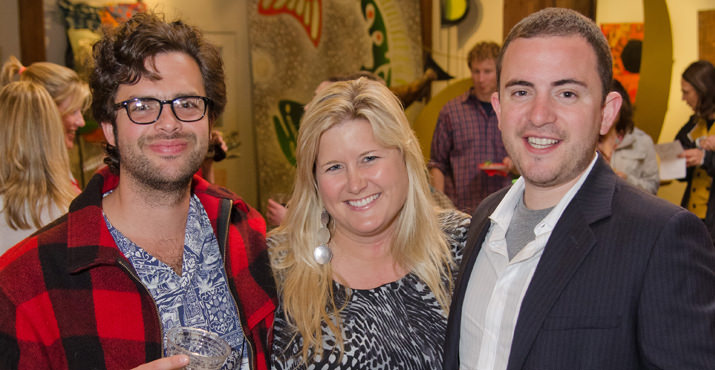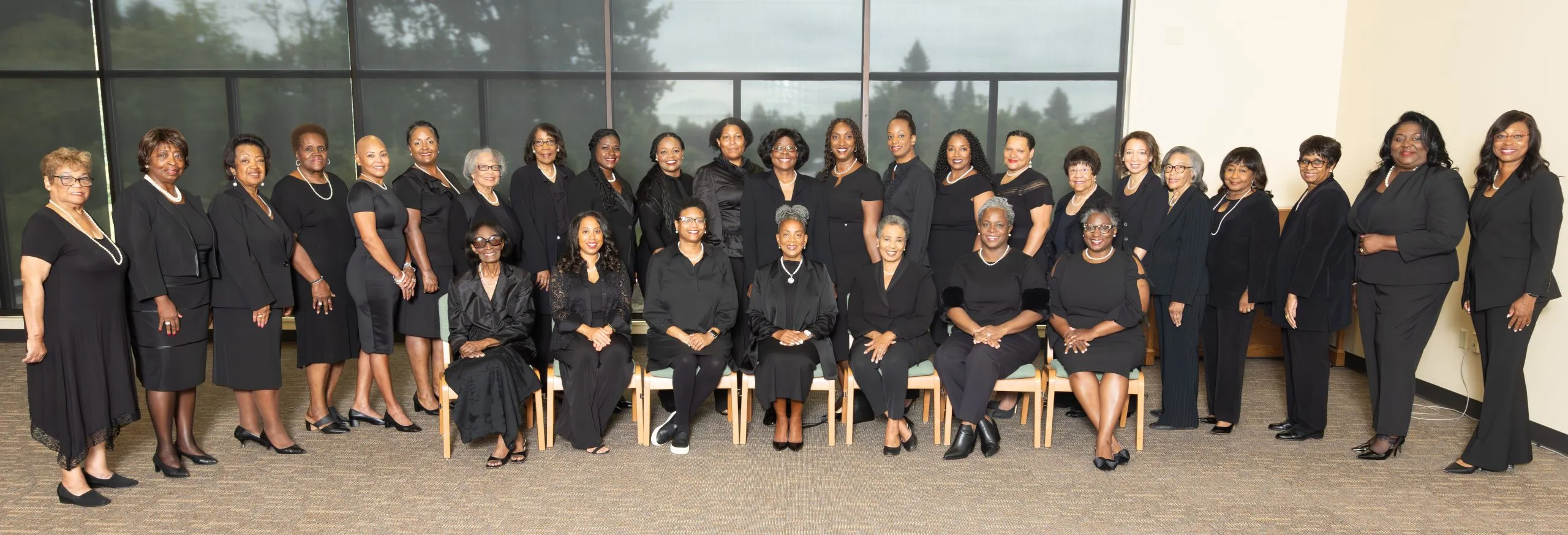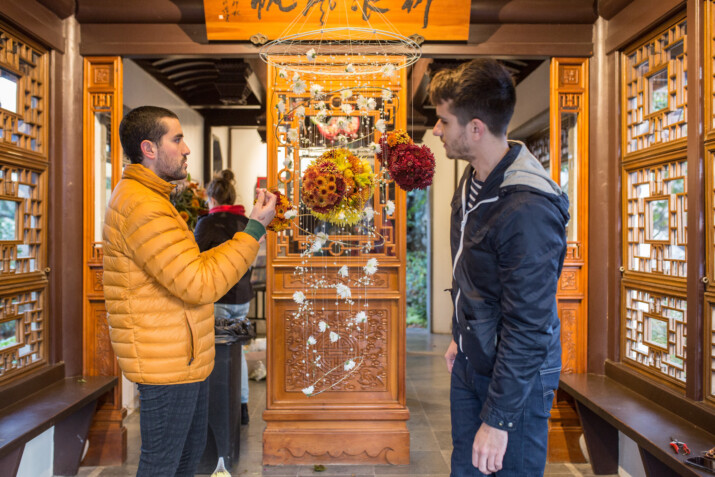Portland, April 26th. The launch party for “Red Sweater Project” was an artful affair with hundreds of items up for sale at the Springbox Gallery to raise money for the charity. The new, locally based, nonprofit helps to create affordable, accessible and advanced educational opportunities for children in rural Tanzania. Executive Director, Ashley Holmer thanked guests like Jay Rubin and Scott Mylnechuck for their support.
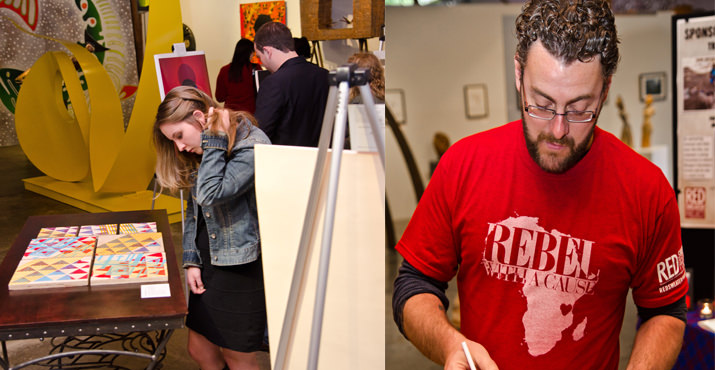
Supporters had had lots of art from which to choose at the Red Sweater Benefit. Volunteer, Tim Sexton, sold raffle tickets wearing one of the organization's t-shirt.
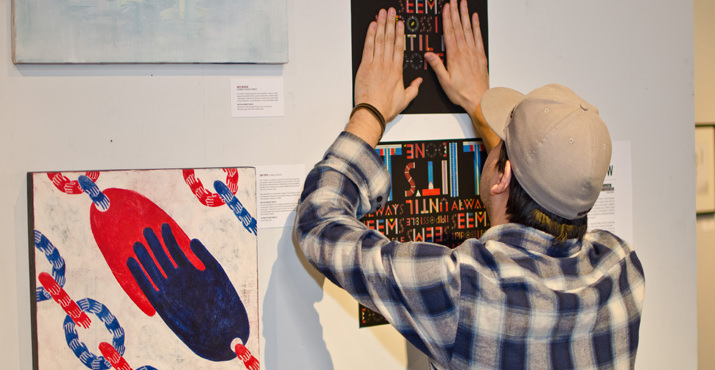
Supporters say, "It's such a simple gesture: put a child in a red sweater and send them to school. Provide food for each student every day. Watch them grow."
The average family income in Mungere Village is $190 (USD) per year, while average secondary school and boarding school fees are $500. Over 90% of Mungere families cannot afford boarding schools, but they can pay $20 per year to send their child to Mungere Secondary School. Accessible
Tanzania is suffering from a shortage of teachers and schools, and children living in rural areas must travel long distances or attend expensive boarding schools. Mungere Secondary School operates within the village, providing education and health services within the community. Advanced
Education is about more than test scores – it’s about critical thinking, innovation and solutions. By creating educational institutions that utilize renewable energy to power computers, providing access to information technology and the internet, we equip each child with skills that lead to success in a 21st century world. Courses in business development encourage entrepreneurship and innovation, while vocational courses develop real-life skills that lead to employment and self-sufficiency.


